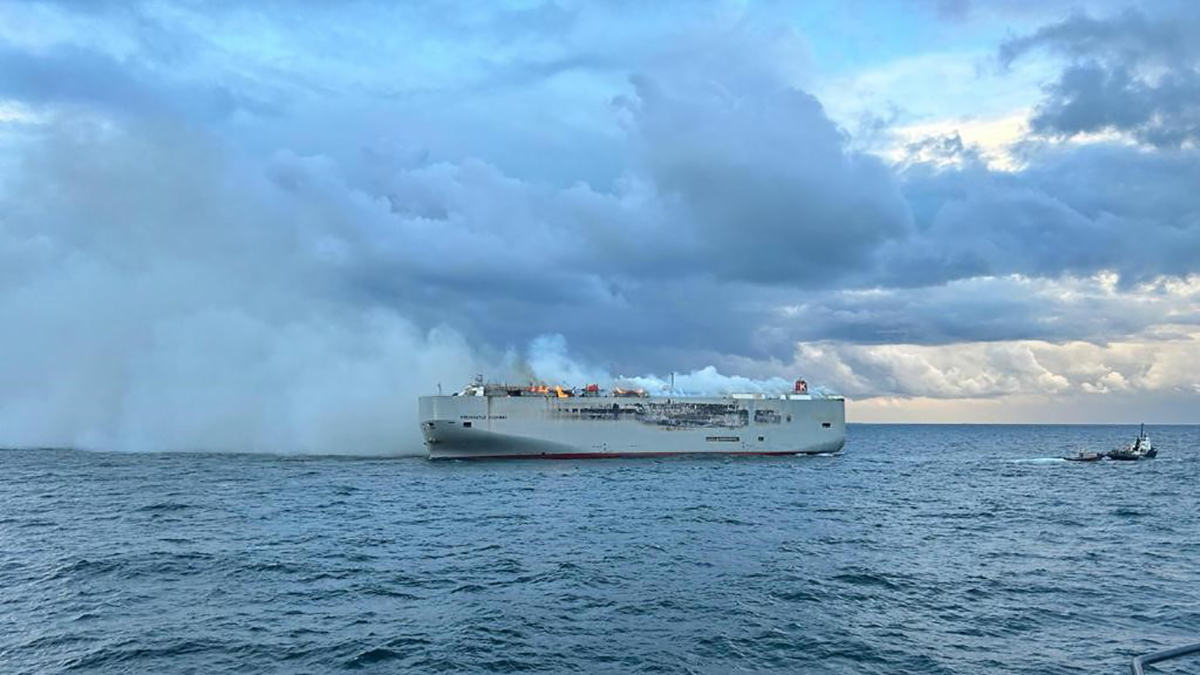Shipping’s ageing fleet and mounting crew crisis heighten systemic risks for insurers
Ageing vessels are disproportionately involved in maritime accidents, oil spills and costly breakdowns, while a staffing shortage threatens to leave ships understaffed and with unexperienced personnel at the helm
Maritime industry continues to push the global fleet to its limit, playing a dangerous game of Russian roulette with crew, oceans, cargo – and insurers’ portfolios
Is yet another perfect storm brewing in the global maritime industry? While some segments – particularly tanker ships involved in oil and chemical trades – are enjoying a historic bull run, the sector as a whole is struggling with ageing fleets and a dwindling supply of crew.
This is a sector that has had to endure more than its share of systemic risks over the past half a decade, from a pandemic that upended global supply chains to mounting geopolitical tension that has had all-too-real consequences for some vessels and seafarers.
Shipping is a cyclical sector by nature, but some shipping companies have had record years as a result of increasing volatility in the global trade ecosystem.
This pursuit of short-term cash does little to paper over the cracks. Research from Xclusiv Shipbrokers released earlier this month finds nearly 30% of the current bulk shipping fleet will be more than 20 years old by 2030. Similarly, 48% of tankers in deadweight tonnage terms will be entering their third decade of sailing by the same year.
Their findings match data from ship brokerage BRS, which earlier this year found even accounting for newbuildings, the average age for the global tanker fleet would increase to 15.1 years by 2028 from 12.6 years in 2024.
There is some good news for keen observers. According to data tracked by Lloyd’s List earlier this year, new orders for tankers continue to pile up: 35% of all new vessel orders in 2024 have been for tanker ships of some kind.
Ageing vessels
However, the overall picture remains that the world’s ship recycling yards are low on work, as shipowners look to extend the life of their ships as long as possible and extract as much profit as they can from their operations.
Lloyd’s List Intelligence data shows 2024 is set to see the lowest levels of ship scrapping in 33 years. Just 21 vessels, comprising only 204,500 gt, arrived at ship recycling centres on the Indian subcontinent and Türkiye in September.
Meanwhile, sanctioned trades – particularly of price-capped Russian oil – continue to reward unscrupulous owners of older tonnage with large returns, returns that may stay the shipyards’ Grim Reaping scythe for years.
The rough and tumble of maritime economics means the age of the global fleet has become more than a matter of aesthetics; it is a critical safety and risk issue that marine insurers and the wider supply chain is beginning to wake up to.
Older vessels are more prone to mechanical failures, structural weaknesses and technological obsolescence. They are less fuel-efficient, more polluting and increasingly incompatible with regulatory pressure on shipping to decarbonise.
These ageing vessels are disproportionately involved in maritime accidents, oil spills and costly breakdowns. As reported in Lloyd’s List earlier this year, Allianz has found older dark fleet tankers have been linked to more than 50 accidents or incidents already. This includes the tragic explosion of Pablo off Malaysia earlier this year, which killed three crew and had no apparent insurer.
Nevertheless, the industry continues to push the global fleet to its limit, playing a dangerous game of Russian roulette with crew, oceans, cargo – and insurers’ portfolios.
All of this would perhaps be fine, even manageable, in normal times. But there is another crisis compounding risk that is happening simultaneously.
Workforce crisis
If ageing vessels represent the hardware problem, then shipping industry’s ongoing crew shortage is a critical software failure. While it is not widely discussed beyond the maritime global village, shipping is facing an unprecedented staffing crisis, one that threatens to leave ships understaffed and with unexperienced personnel at the helm.
The root causes are multifaceted: an ageing workforce, lack of new recruits, poor working conditions, and the psychological toll of extended time at sea. The Covid-19 pandemic exacerbated these issues, with crew changes becoming logistical nightmares and many seafarers stranded at sea for months beyond their contracts.
The Russia-Ukraine war hasn’t helped, with the International Chamber of Shipping (ICS) reckoning that around 14% of all crew come from one of the two nations.
The ICS recently released a survey where global shipping executives reported that the availability of trained personnel is, in their view, the factor having the greatest impact on their operations.
The truth is this is a crisis the industry will struggle to solve into the long-term. Shipping has failed to make seafaring an attractive career prospect for the younger generation, has neglected to invest in training and development and has turned a blind eye to the mental health challenges faced by those who keep the world’s supply chains moving.
This isn't just a staffing issue; it's a ticking time bomb for maritime safety and efficiency. The interplay between these two crises – the crew shortage and an ageing global fleet – threatens to create a feedback loop of escalating risk.
Ageing vessels require more experienced hands to operate safely, but the world faces a shortage of seasoned mariners. Inexperienced crews are more likely to make errors, especially when dealing with outdated equipment or in crisis situations. This combination is a recipe for risk that insurers would do well to heed.
The increased likelihood of accidents, breakdowns and environmental disasters translates to higher claims and unpredictable losses. Insurers are caught between the need to accurately price these escalating risks and the pressure to keep coverage affordable for an industry where some operators are already (or perhaps perennially) struggling with tight margins.
In response, there has been a rise in exclusions, higher premiums and more stringent inspection requirements. Earlier this month, ship inspections company RightShip said they would be reducing their thresholds for mandatory ship inspections from 14 years to 10 years between now and 2026.
There is also a potential role for shipping’s embattled regulator, the International Maritime Organization (IMO), to do more to weigh in on vessel ages and crew welfare standards.
The vast majority of shipping companies are a rule-abiding bunch. If the IMO or EU steps in on these issues, they will change their ways. Until then, the fundamental economics that rule shipping’s decision-making will continue to reign supreme. Unless it’s bad business to operate older tonnage, nothing will change.



